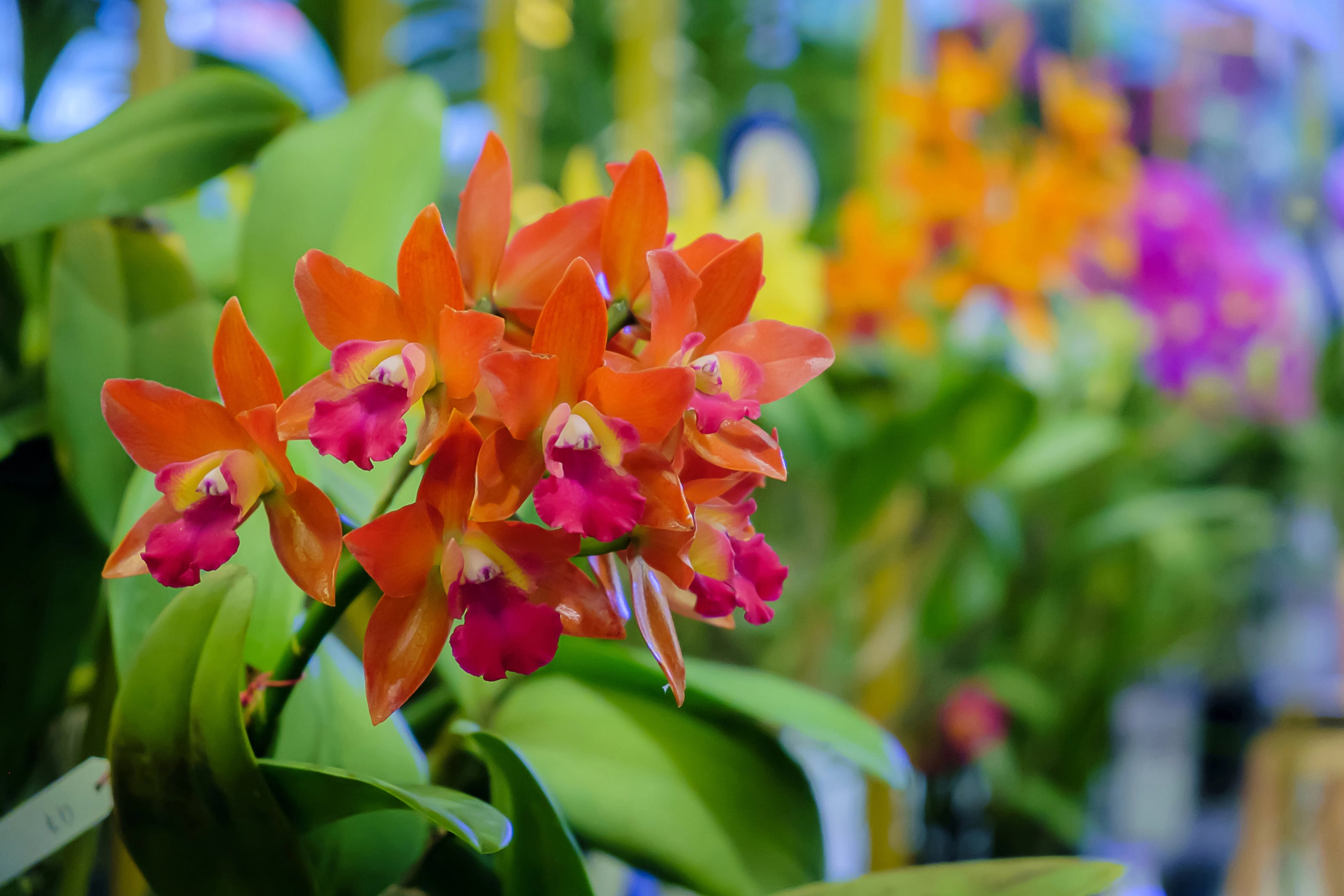- 100% satisfaction guaranteed on every order -

Welcome to the enchanting world of orchids! At Dottie’s Flowers, we understand the allure these exotic beauties hold and the intimidation they might pose to newcomers. Fear not; for caring for orchids is not as daunting as it might seem.
With a bit of knowledge and attention, you can cultivate a thriving orchid that brings elegance and a touch of the tropics into your home. Let's embark on this journey together with our beginner’s guide to orchid care.
Orchids are part of a diverse and widespread family, Orchidaceae, known for their stunning flowers and unique growing conditions. The most common household orchid is the Phalaenopsis, or the "moth orchid," prized for its long-lasting blooms and relative ease of care. Recognizing the type of orchid you have is the first step in providing proper care, as different types may have slightly varied requirements.
Orchids thrive in bright, indirect light. A windowsill facing east or west is ideal. Direct sunlight can scorch their delicate leaves, so if the only available light is a south-facing window, consider using a sheer curtain to diffuse the intensity. Lack of adequate light is a common reason orchids fail to bloom.
Overwatering is the orchid’s nemesis. To avoid this, water your orchid once a week by letting water run freely through the potting medium and out of the drainage holes. Ensure the pot never sits in water, as this can lead to root rot. Orchids housed in bark will require more frequent watering than those in sphagnum moss, as bark dries out more quickly.
Orchids flourish in high humidity, ideally between 40% to 70%. To increase humidity, you can place the orchid's pot on a tray filled with pebbles and water, ensuring the pot is above the water level. Misting the leaves in the morning can also help, but avoid wetting the flowers.
Temperature
Most orchids prefer a daytime temperature between 65°F to 75°F (18°C to 24°C) and slightly cooler at night. Temperature variations between night and day encourage flowering. Be mindful of placing orchids near heating or cooling vents, as extreme temperature changes can stress the plant.
Feed your orchid every other week during the growing season (spring and summer) with a balanced, water-soluble orchid fertilizer. During the dormant period (fall and winter), reduce feeding to once a month. Over-fertilizing can harm your orchid, so it's better to err on the side of caution.
Orchids require repotting every 1 to 2 years or when the potting medium breaks down and no longer drains properly. The best time to repot is just after flowering, when new growth appears. Use a potting mix designed for orchids and a pot that offers plenty of drainage.
Caring for orchids can be a rewarding experience, offering a beautiful reward for your efforts. Remember, patience and observation are key. Each orchid has its personality and preferences, and part of the joy is learning and growing alongside your plant.
At Dottie’s Flowers, we're here to support you on your orchid care journey, offering advice, supplies, and a selection of orchids to brighten your home. Embrace the elegance and complexity of these magnificent flowers and discover the rewarding world of orchid care. Contact us today to learn everything you can about orchids. Happy growing!
Latest Blogs: